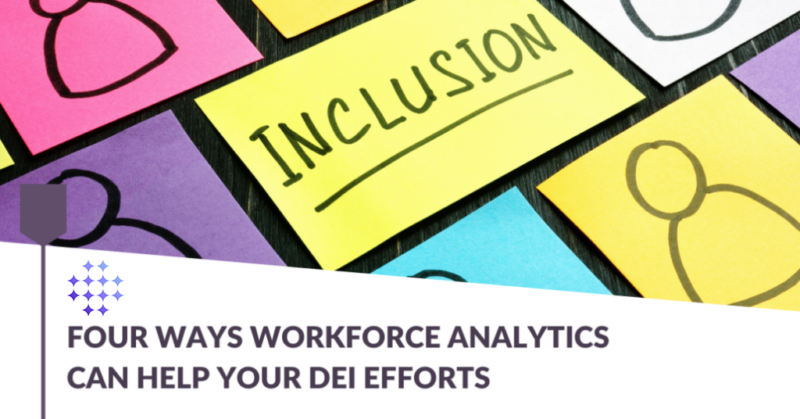What your employee engagement survey isn’t telling you about DEI
June 12, 2023

You’ve been running engagement surveys for years, maybe even decades, as a way to measure the impact of your employee engagement initiatives and track your progress.
Employee engagement surveys are valuable tools but when it comes to developing your DEI strategy and initiatives, they won’t tell you what you need to know to make an impact on your people and your organization.
Here are four insights you are missing if you are relying on your employee engagement survey data to determine your DEI strategy and initiatives.
-
The current practices and behaviors promoting or preventing diversity, equity, and inclusion
Employee engagement surveys are longitudinal studies. They are designed to evaluate an existing solution or practice over time.
They are not designed to help you understand your employees in a way that will help you identify new opportunities and solutions, or to discover new insights into their experiences.
To gain these insights you need a more nuanced approach, examining the elements of diversity, equity, and inclusion from different angles. You need data with more depth and with richer options for analysis and interpretation. All of this will help you identify strengths, weaknesses, and opportunities in a way that puts your employees’ experience at the heart of your DEI work.
So your employee engagement survey will measure perceptions of the statement ‘my organization is dedicated to DEI’ but it won’t identify the specific practices and behaviors that support or prevent greater diversity, equity, and inclusion within your organization.
-
What matters most to YOUR people
The typical employee engagement survey is not designed to help you make decisions about DEI initiatives or strategy.
To get the data you need to develop policies, practices, and even behaviors that support your commitment to DEI, you need to design a survey based on the decisions you want to make using its results.
You also need to design a survey that focuses on what matters most in YOUR workplace. It needs to be relevant to where you are in your DEI journey and created to support the next steps that are appropriate for your organization.
Creating this type of survey requires DEI expertise and knowledge. You need to be sure that critical DEI elements are incorporated appropriately and sensitively into your survey. You also need to be sure that your survey will produce valid and reliable data.
-
Meaningful benchmarks
Results from employee engagement surveys are often benchmarked against industry ‘norms’. The nature of these ‘norms’ is that there are often only small differences between an organization’s results and those for their industry. Often this lulls leadership into a false sense of security and they miss the opportunity to take action that could set them apart from their competition. There is limited value in these external benchmarks.
However, we recommend using internal benchmarks with your DEI survey. You should compare your organizational ‘averages’ to responses based on demographic breakdowns. DEI is meant to create equitable and inclusive experiences for employees of all backgrounds, identities, and perspectives. So a meaningful difference between race, gender identities, hierarchies, or roles could be an indication of areas where improvements are needed.
-
Your key inclusion drivers
Employee engagement surveys cannot help you understand your organization’s unique drivers of inclusion. These drivers are the unique behaviors and actions that matter most to your employees. Understanding these will allow you to design DEI initiatives that have the greatest impact on your people and your organization. A robust DEI survey will give you data that you can further analyse to identify these drivers.
If you’d like to talk more about how we can help you design your DEI strategy, schedule a consultation with our Assessment team today. Click here to get started.


